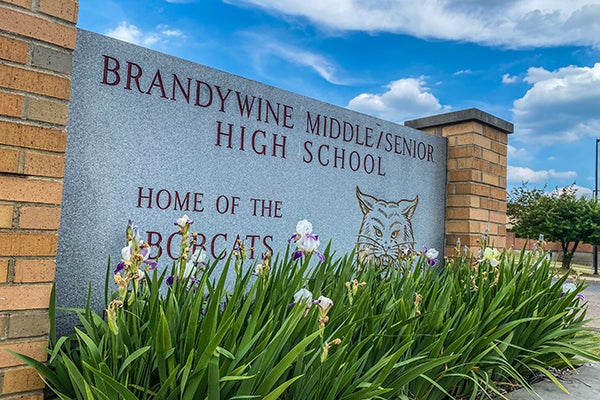Learners pleased with program
Published 12:08 pm Monday, June 1, 2015

Co-valedictorian Nicholas Suckle speaks at Niles High School’s commencement ceremony for the Class of 2015 Thursday. He was part of Niles New Tech’s first graduating class. (Leader photo/CRAIG HAUPERT)
First Niles New Tech class graduates 88
Niles Community Schools took a risk when it started a project-based learning program called New Tech at the high school four years ago.
School officials didn’t know exactly how it would work and, more importantly, if students would find success using the PBL model even though there was plenty of evidence of New Tech working in school districts across the country.
“Anytime you try something new and innovative in education it is a risk,” said New Tech Director Jerry Holtgren.
Now, four years later, the first group of New Tech students has graduated. Eighty-eight received diplomas at Thursday’s commencement ceremony at the high school football stadium.
So how did the first New Tech class do?
Holtgren said while all indications point toward positive, school officials won’t really know until four years from now when they get a full picture of how this group faired in college and the workplace.
“I think we will know that in a few years based on their college success,” he said. “But I think the graduating senior we are seeing is what we envisioned. They are confident young people who have presentation skills I’ve never seen before in these types of kids. They can think critically and they’ve collaborated so the product we see in the end is what we envisioned.”
Supt. Michael Lindley said based on comments he’s heard, people in the community are impressed by the New Tech seniors.
“When they hear these kids present they are really impressed because they have not seen other high school kids with these kinds of skills… they would agree they are learning skills you have to have in order to be successful in 21st century,” he said. “I think that has been a positive outgrowth.”
There are a few statistics that can be used to see how this class compares to others on a national level.
A plus for Niles New Tech can be seen in the graduating class’ ACT scores taken when they were juniors. Niles New Tech students scored an average of 21.2 — a full 1.4 points better than the national norm of 19.8.
Also, a significant number of the graduates — 79 out of 88, or 89.7 percent — have been accepted into college, according to Holtgren.
One of those 79 is co-valedictorian Nicholas Suckle, who said he will enroll in the college of engineering at the University of Michigan in the fall.
Suckle credits New Tech’s focus on working in randomly assigned groups for helping prepare him for life after high school, when he will likely deal with different types of people and personalities.
“Figuring out group roles, group dynamics and group collaboration — these are skills I’ve learned that I feel will help me in the workplace,” he said. “I don’t think I would have gotten that in the regular high school or in traditional learning.”
Fellow graduate Bailey Schneider said she feels comfortable talking in front of large or small groups because of the many presentations students were required to give under the PBL model. She said she spoke in front of more than a thousand people at a marketing conference last year.
“I would not have been prepared for that if I didn’t have those experiences,” said Schneider, who will be attending the University of Michigan in the fall.
Another benefit of New Tech, Suckle said, is that projects often included real business leaders from the community.
It helped make the projects feel “more important” and helped him learn how to speak confidently and comfortably in front of just about anyone.
“For life after high school if I have to meet with important people for an interview or presentation… I feel like I am prepared for that,” he said.
Although New Tech worked for Schneider and Suckle, it didn’t work for everyone.
Holtgren said they started with 124 students four years ago, meaning that 36 students did not graduate as Niles New Tech students on Thursday.
Where did those students go?
School officials weren’t able to provide any concrete numbers.
However, Holtgren offered a few explanations. He said some students moved out of the district, while others determined that project based learning wasn’t for them.
“A handful of learners said project based learning isn’t what they thought it was going to be and that’s fine because we are a district of options and there might be one that works better for you,” he said.
He also said adding anyone other than freshmen students to New Tech is challenging because the educational model is so different from the traditional one.
“It can be done, but each year (the student is older) it becomes more difficult,” he said.
Taking all these things into consideration, Holtgren said the risk taken four years ago was worth it.
“We are very proud of the young people we are putting out,” he said, adding that New Tech would continue to innovate and improve in years to come.
Suckle and Schneider also said they are pleased with their decision to join New Tech.
“When we came in they called us pioneers, we called ourselves guinea pigs because we were the first class,” Suckle said. “In a couple years from now it could be even better than I experienced and I experienced something amazing.”






